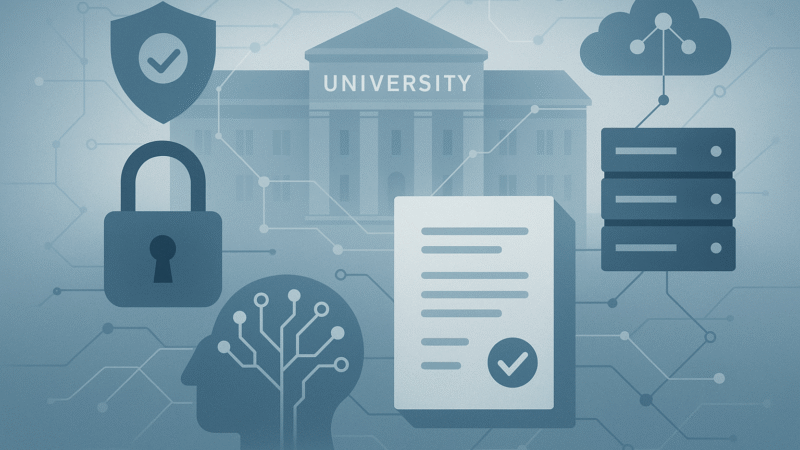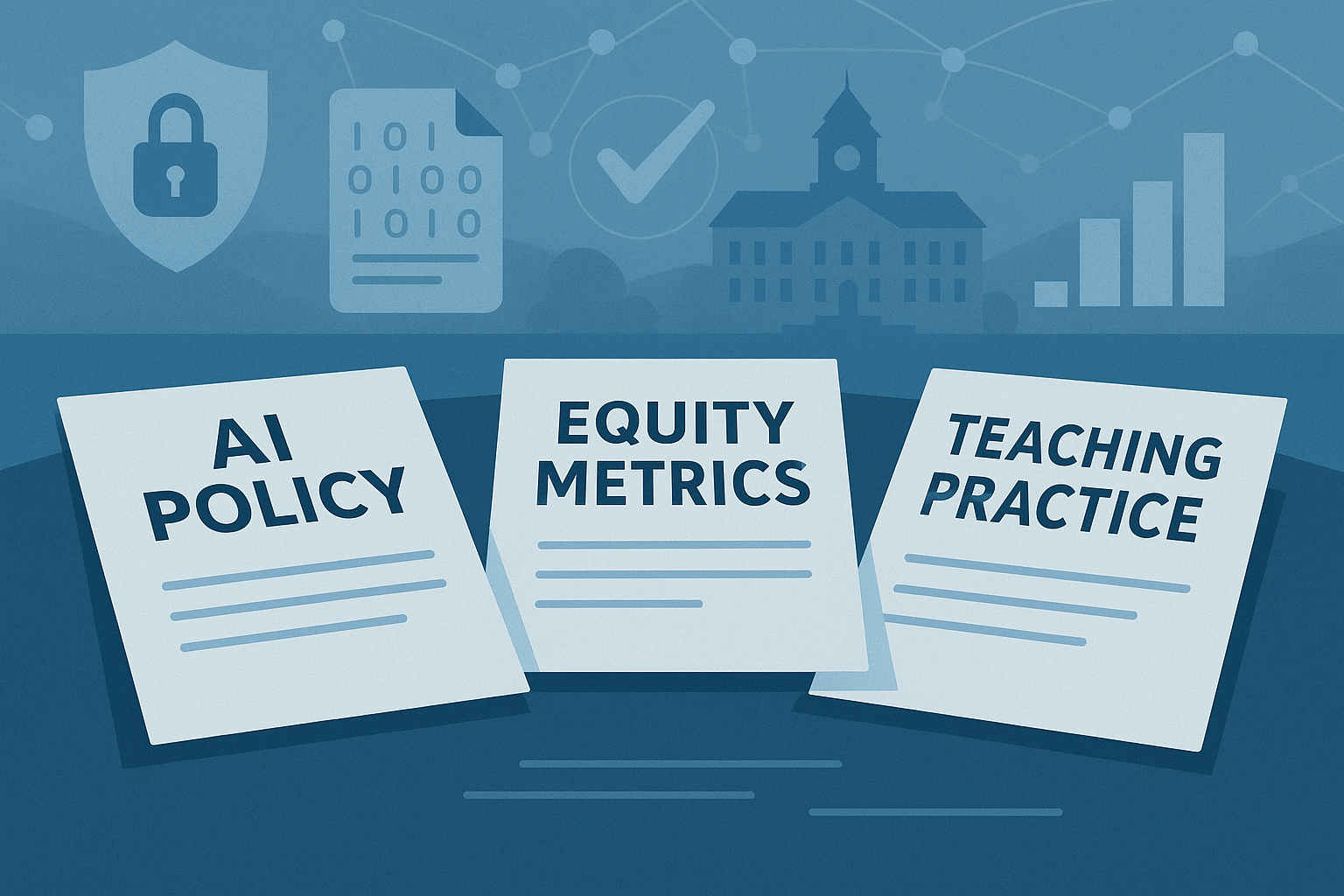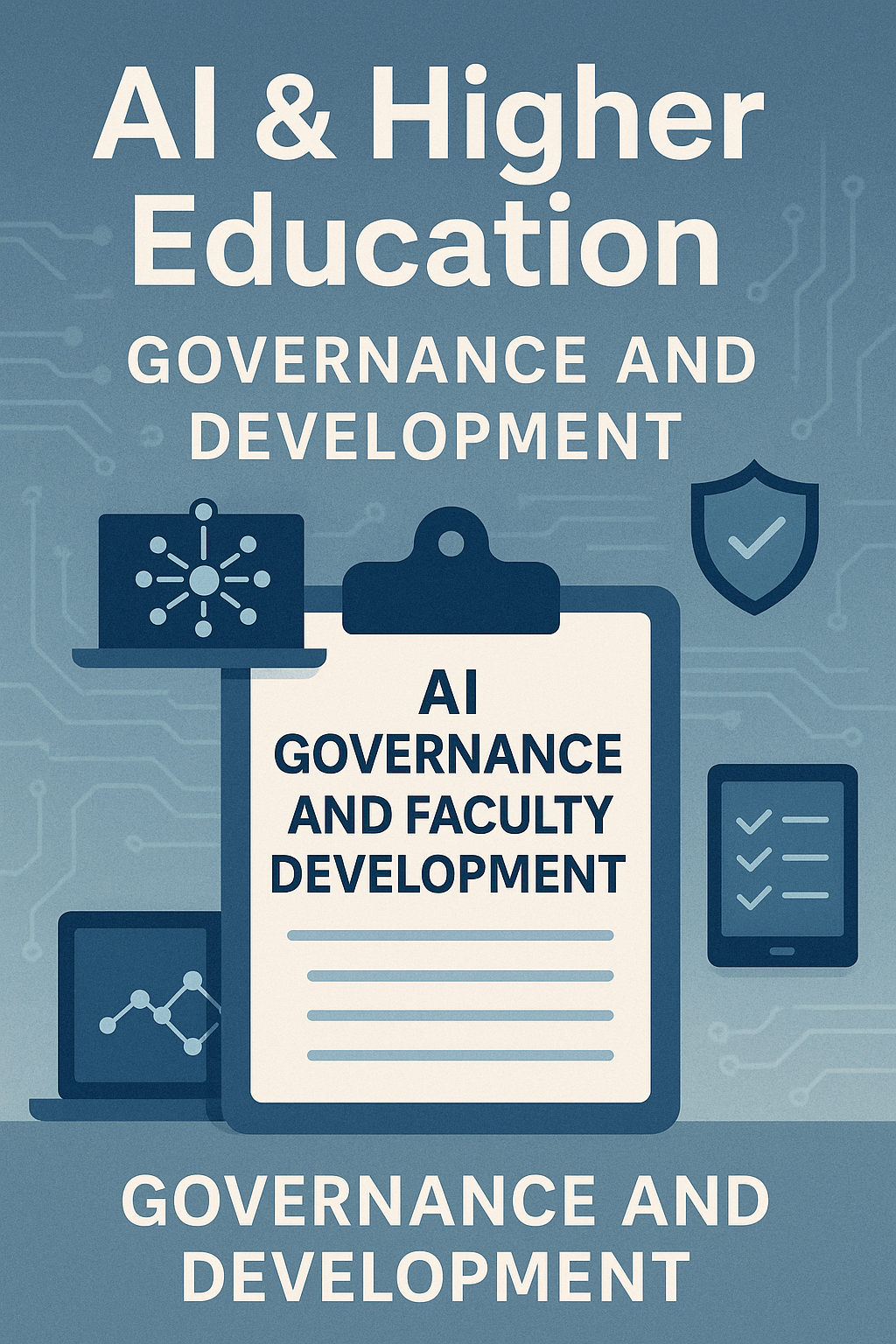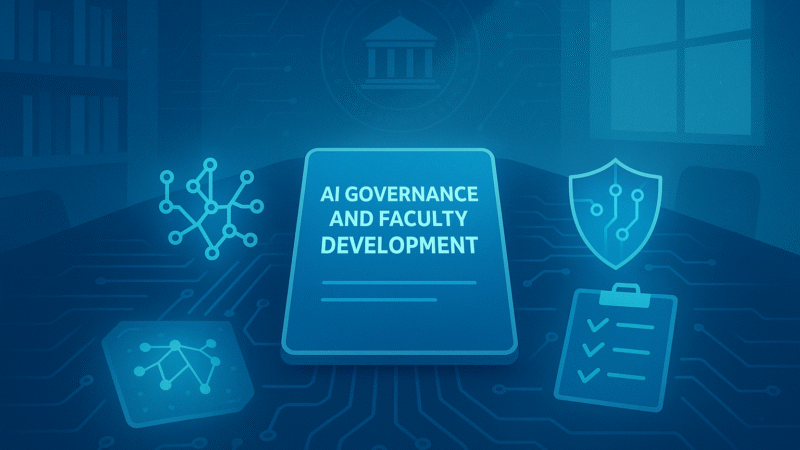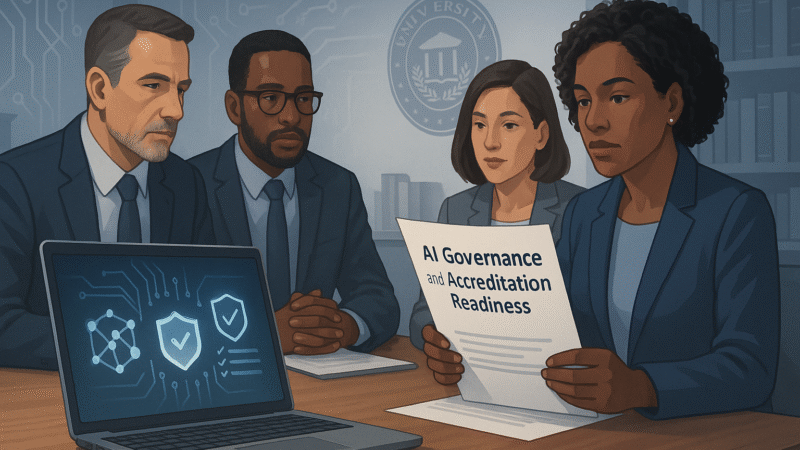Colleges and universities are making permanent decisions about artificial intelligence, often faster than governance structures can keep up. Graduation standards, assessments, and administrative practices are shifting, sometimes without clear faculty involvement. This issue focuses on what is at stake when those decisions move forward without shared governance, and why waiting to act carries its own risks.
Higher education is moving into a deeper phase of A I readiness, where governance, infrastructure, and academic integrity can no longer be treated as afterthoughts. This week’s brief highlights federal funding priorities, secure enterprise tools, sovereign compute investments, and renewed concern over how A I may shape student learning. Institutions are being pushed to upgrade not only their systems but also their standards, signaling a shift toward more deliberate and accountable A I leadership across campuses.
Higher education is moving through a period where the real strain is not the technology, but the hesitation that surrounds it. Faculty are teaching in uneven conditions, students are making choices in the absence of guidance, and institutions are attempting…
Higher education is entering a moment where decisions about AI use can no longer be put off or brushed aside. Leaders are confronting real pressure to define what responsible adoption looks like when policy gaps, equity concerns, and teaching quality…
This week’s AI & Higher-Education Global Brief explores how universities are moving from experimentation to accountability. Featured research highlights a growing demand for governance frameworks that balance innovation with integrity. From faculty readiness and AI-tool adoption to student writing and accreditation reform, the focus is shifting toward strategy, not novelty. Institutions are now being called to demonstrate measurable responsibility in how AI shapes teaching, learning, and policy—signaling a defining moment for higher education’s digital maturity.
Higher education is entering a new phase where AI policy, ethics, and practice converge. This week’s stories reveal how universities are moving beyond experimentation to accountability—shaping governance frameworks, faculty development, and interdisciplinary learning models that make AI both credible and measurable. From institutional oversight to classroom design, readiness is no longer a concept; it’s the standard.
The AI conversation in higher education has shifted from what’s possible to what’s provable. Institutions are no longer praised for experimentation—they’re being measured by how well they govern it. This week’s strongest studies and policy reports show universities confronting a…


